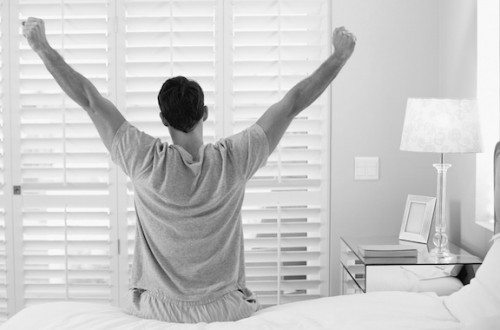The path to holiness requires good time management
Oprah Winfrey recently joined Weight Watchers, which means she is not only a card-carrying, point-counting member of the weight-loss club, she is also a part owner. That’s how you do it when you’re Oprah: You go big (“you get a car, you get a car, you get a car”) or you don’t bother.

For the 61-year-old billionaire, news of her involvement in the company and her investment of a 10-percent stake yielded a big pay day: Weight Watchers’ stock doubled, netting Oprah about $45 million in one day.
She reported her progress in the January issue of O: The Oprah Magazine, appearing on the cover in her most stripped-down look yet — barefoot in taupe spandex, a purple shawl and a nude lip. “I wanted a plan for life, and here it was in the form of Weight Watchers,” Oprah wrote in her back-page column. She’s lost 26 pounds since last August and gained a powerful sense of well-being.
What strikes me about her slickly marketed invitation to join Weight Watchers is how tempting it is, how eagerly many of us are waiting for an entry point into the future we’ve always imagined. We’re paralyzed by the mounting gap between dreaming and doing, wondering what to do with the rest of 2016 in light of our Catholic faith and our packed calendars.
Challenging tweet
Bert Hernandez recognized his chance to finally turn things around when he spotted a random tweet one Monday last August. The 40-year-old youth minister from San Antonio, Texas, had already determined that getting on top of things, for him, would mean rising early like Teddy Roosevelt. He wanted to exercise daily, clean his house and strengthen his prayer life.
For several months Bert had been setting his alarm at 4 a.m., with a success rate he could count on one hand. Then came Leah Darrow’s tweet inviting people to participate in the Heroic Minute Challenge, a hashtag the popular Catholic speaker had borrowed from St. Josemaría Escrivá, who wrote: “Conquer yourself each day from the very first moment, getting up on the dot, at a fixed time, without yielding a single minute to laziness. If, with God’s help, you conquer yourself, you will be well ahead for the rest of the day. … The heroic minute: here you have a mortification that strengthens your will and does no harm to your body.”
Bert saw Leah’s movement as a club he could be part of, informed by Catholicism and driven by accountability, so he tweeted, “I accept the #HeroicMinuteChallenge” and made his pledge public.
The next day, at 4 a.m., he got out of bed and scurried to the kitchen, turning on the stove to make coffee, then retreating to the den to begin morning prayer. He tweeted the evidence: a screenshot of his Office of Readings, his iPhone at a 98 percent charge, his body, much lower.
By 6:30 a.m. he’d prayed the Liturgy of the Hours, run two miles and showered.
The second morning was easier, and his Twitter picture showed the hymn lyrics “morning has broken like the first morning.” He was doing it!
“My day always seemed better, starting that way,” Bert told me. “I definitely felt more peace.” The added prayer time also helped him discern a job change that has brought many rewards.
Good management
The Heroic Minute Challenge wasn’t easy for Leah either, but the 36-year-old mom from St. Louis couldn’t abandon others who had signed on, and she wanted to offer real-time “likes” of their early-morning evidence — snapshots of sunrises, Scripture and coffee.
“The most important thing is getting my feet on the floor,” Leah told me. “If I can move my feet out from under the covers and they can touch the hardwood floor, half the battle’s done.”
The path to holiness, Leah says, requires time management. “We need to think about the time God has given us, and we need to use it well.”
Christina Capecchi is a freelance writer from Inver Grove Heights, Minnesota, and the editor of SisterStory.org.






















